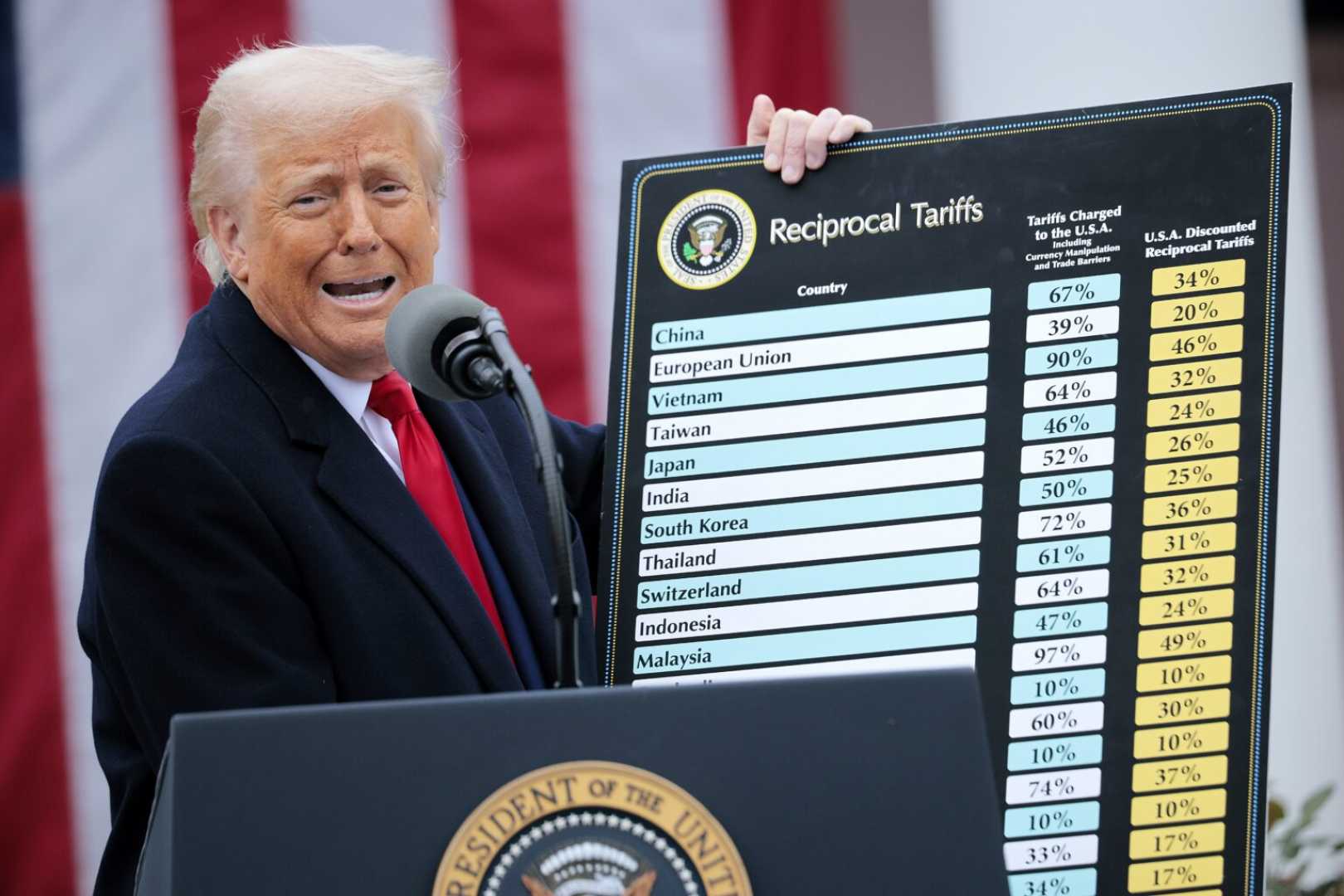Politics
Trump’s Tariff Strategy Sparks Congressional Backlash Amid Economic Uncertainty

WASHINGTON — President Donald Trump has announced a new round of tariffs exceeding 100% on a broad range of products beginning Wednesday, April 2, 2025, a decision that is causing ripples across global markets and testing political alliances in Congress. The president’s move follows retaliatory tariffs imposed by China on U.S. goods.
The White House claims these tariffs are a necessary strategy to address perceived trade imbalances and to foster American manufacturing. However, the long-term effects of these levies on the economy remain uncertain, leading to rising fears of recession and increased costs for consumers.
Trump’s assertion of authority to impose such extensive tariffs is drawing criticism from both sides of the aisle. For the first time during his second term, several Republican senators have expressed concern over the executive branch exercising powers traditionally reserved for Congress. Seven GOP senators joined a bipartisan effort led by Democratic Sen. Maria Cantwell and Republican Sen. Charles Grassley to re-establish congressional authority over tariffs.
Under the proposed legislation, Congress would need to review and approve new tariffs within 60 days, allowing lawmakers to exert oversight over executive actions that significantly impact the economy. “For too long, Congress has delegated its clear authority to regulate interstate and foreign commerce to the executive branch,” Grassley stated.
This discontent is echoed by Rep. Don Bacon, R-Neb., who emphasized on CBS News, “It’s time that Congress restores its authorities here.” However, while bipartisan support exists, the challenge remains that a two-thirds majority is required to override a presidential veto.
Most Congressional leaders believe that without significant political shift, legislative action against Trump’s tariffs may be difficult to achieve. Senate Majority Leader John Thune remarked on Monday that discussions “don’t have a future” without broader support.
Trump’s current strategy leverages legal interpretation of several statutes, including the International Emergency Economic Powers Act and the Trade Act of 1974. Critics contend that this interpretation allows Trump to sidestep constitutional limitations on tariff powers.
A legal challenge spearheaded by the New Civil Liberties Alliance on behalf of Florida-based company Simplified argues that the president’s use of the IEEPA to impose tariffs is unconstitutional. “The emergency law is meant for sanctions to protect the U.S. from foreign threats, not as a tool for tariff implementation,” the group stated.
Despite these constitutional concerns, recent courtroom decisions have favored the president’s expansive interpretation of executive authority. The Supreme Court recently permitted Trump to continue certain immigration policies, highlighting the judicial system’s current support for his presidency.
Historical context illustrates that Congress has increasingly ceded trade authority to the executive branch, especially post-Great Depression. The passage of significant laws in the 1930s was a turning point, enabling presidents to unilaterally impose or adjust tariffs. As it stands, Republicans and Democrats alike face the dilemma of balancing their loyalty to Trump with their constituents’ economic well-being.
Sen. Tim Kaine, D-Va., warned of the economic consequences of continued tariffs, stating, “There is going to be massive economic heartbreak in this country if Congress fails to undo the president’s tariffs.” He emphasized that swift action is necessary to amend the current legislative framework surrounding tariff imposition.
With midterm elections approaching in 2026, GOP senators may also have political motivations to challenge Trump’s tariff strategies, which could be detrimental to their re-election efforts. With Americans feeling the immediate impacts of rising prices, there is a growing call for action from both constituents and members of Congress to reassess the current trajectory of U.S. trade policy under the Trump administration.












